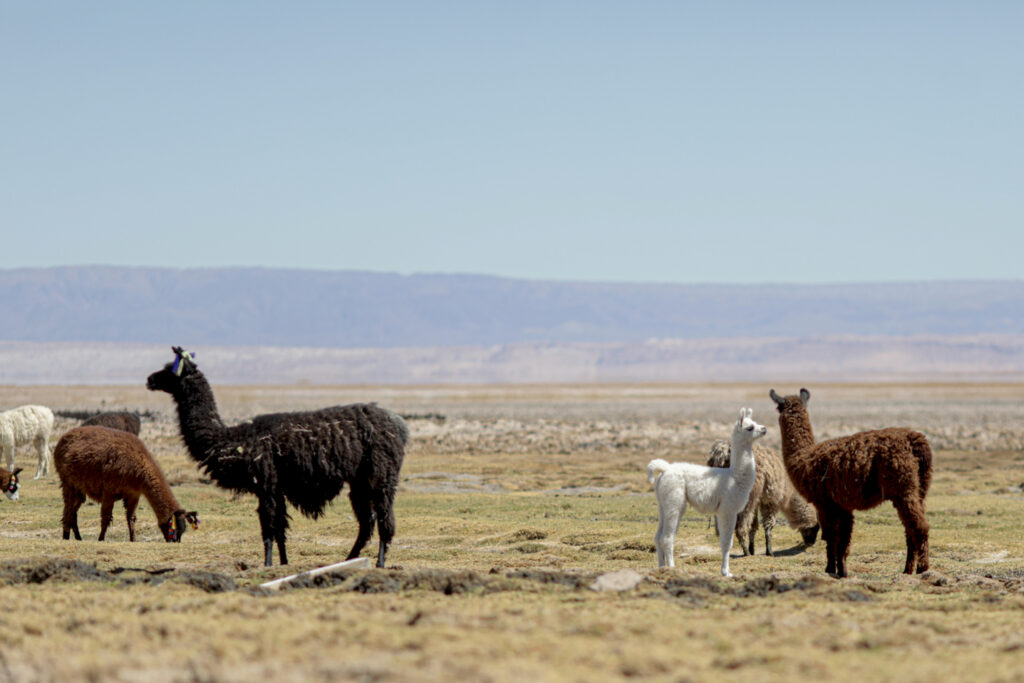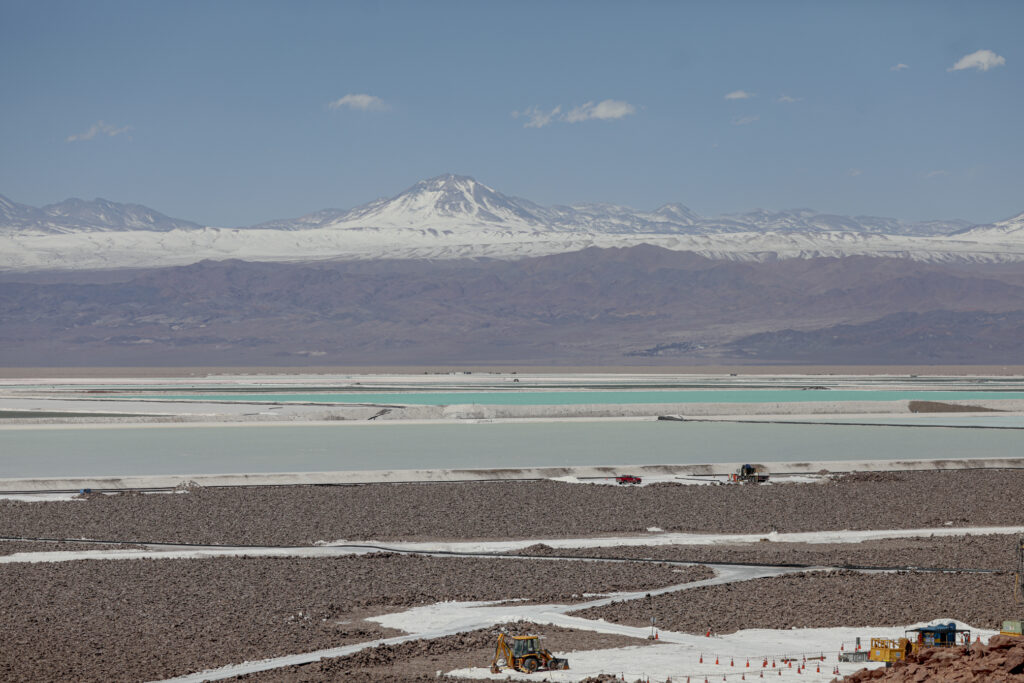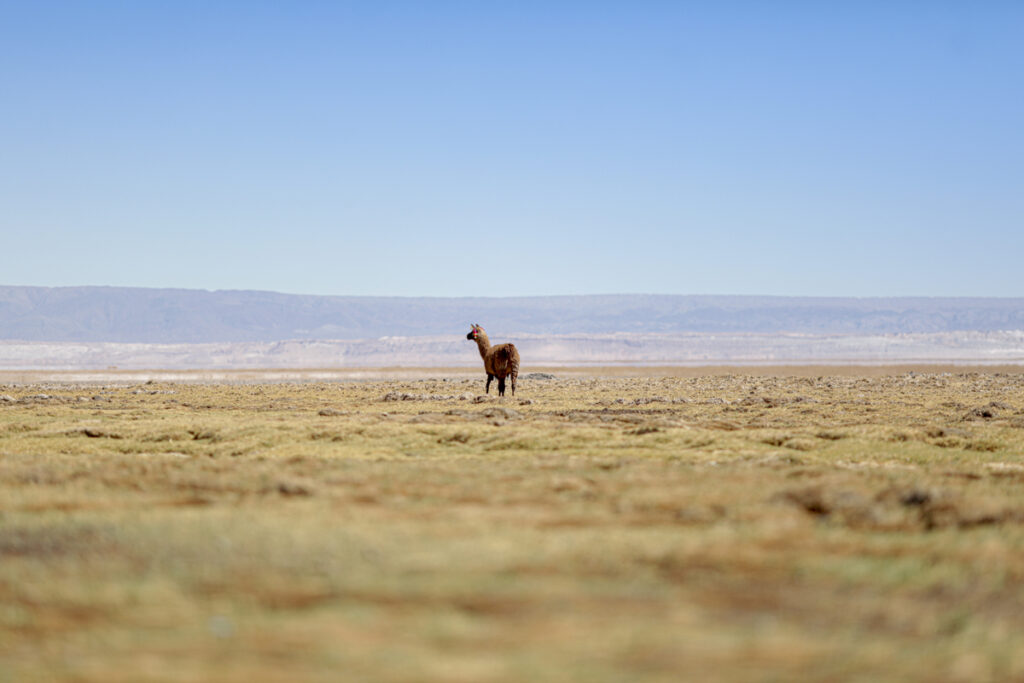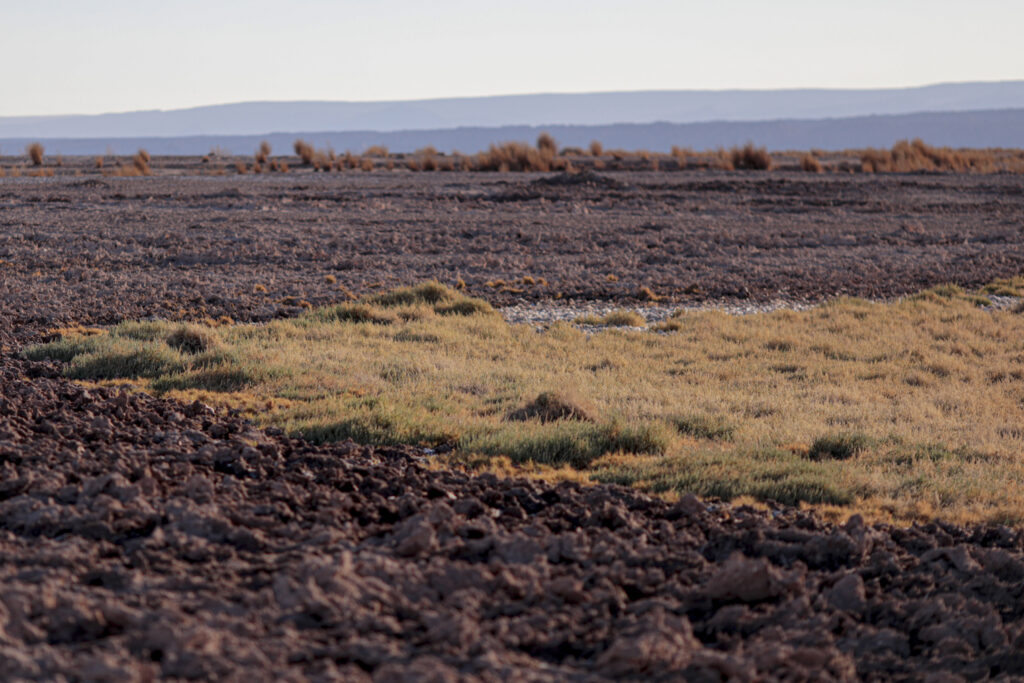
With a soaring global demand for lithium, more and more sites in Chile are being explored for extraction. Across the country, indigenous communities oppose future mining projects.
Nikolaj Houmann Mortensen / @DanWatchDK
The “white gold rush” reigns in Chile these days. With a soaring demand for batteries and EV cars, the global demand for lithium is expected to triple within the next six years, and as Chile is starting to lag behind its previous forecasts for production, the country’s Mining Minister has recently called for the exploration of lithium in “more than 50 salt flats” all over the country.
But the onward march of the mining companies and new explorations also cause novel conflicts with indigenous communities that worry for their ecosystems, agriculture and ancestral territories across Chile.
One example of this is the Salar de Coipasa property near the Bolivian border. Here, the Canadian company Lithium Chile Inc. has been buying up property to initiate a lithium exploration program. But not long after the company’s exploration announcements, members of the nearby indigenous Aymara community of Ancovinto began protesting the extraction plans and tried preventing Lithium Chile from accessing the wetlands of their surrounding environment.
After lithium extraction at the Atacama salt flat has caused conflicts over the few water resources some hundred kilometres South of Ancovinto, community members from the already arid and high-altitude area now worries about the impact for their quinoa crops and lama livestock.
“We Aymaras have subsisted thousands of years in our lands, with our agriculture and livestock”, writes an Ancovinto resident and member of the anti-lithium mining group ‘Ancovinto Resiste’ who wish to stay anonymous, to Danwatch.

“We defend our indigenous community, and we will continue to protect it from being sacked, exploited and contaminated by the extraction of lithium”, the spokesperson writes.
INDIGENOUS COMMUNITY IS BEING SUED
Lithium Chile Inc. has been buying up an increasing number of lithium exploration projects in Chile over the past years, quickly making it one of the largest landholders of lithium-rich salt flats in Chile.
In April this year, the Canadian miner announced that it had received approval from the local communities for an exploration program at its Salar de Coipasa property. According to the company’s press release this established “Lithium Chile as a clear leader amongst Chilean lithium exploration companies in the ability to work constructively with local communities and successfully gaining their support.”
But only a few months later it became evident that the Ancovinto community did not approve the company’s exploration plans, as Lithium Chile Inc. now took the matter to the local mining court and sued the community to get a binding access order to the area, as community members would not let the company enter.
‘Ancovinto Resiste’ claims that the community was never properly informed of the company’s plans and the potential consequences of the mining, saying the company had been trying to exploit “the humility and lack of knowledge” of the community.
According to Lithium Chile press releases, they expect to get that access order from the court soon. But Ancovinto community members tell Danwatch that they will keep attempting to prevent the company from accessing their territory. The Chilean government do not stand up to defend the environment of its indigenous communities, and therefore the communities will have to that themselves, ‘Ancovinto Resiste’ claims.

“Companies come here to satisfy a demand that comes from countries of the Global North – to provide raw materials to the industries of the North. It is colonial structures being repeated, when our flora and fauna is destroyed to meet the demands for electric cars in Germany, USA and Canada”, says the ‘Ancovinto Resiste’ spokesperson who wish to stay anonymous.
Lithium Chile tells Danwatch that the company does not wish to comment on the issue while the court case is still ongoing.
A SACRED MATTER
Several hundred kilometres south from the Coipasa Salt Flat, the Maricunga salt flat is also being explored for impending extraction. The area is only less than five percent the size of the Atacama salt flat where almost all of Chile’s lithium extraction currently takes place, but after the Atacama, the Maricunga is expected to hold the country’s largest lithium reserves.
However, with the industry’s massive consumption of water, the prospect of lithium mining in the area worries the members of the indigenous Colla community of Pai-Ote. The community has experienced several cases of severe drought over recent years, and nearby gold mines are already using much of the area’s water resources, community members claim.
“They want to extract lithium at all costs. For us, this is a sacred matter in the sense that we use those areas for grazing, our animals eat there, we make rituals and there are many ancestral archaeological sites there that we still use”, says Ercilia Araya, president of the Pai-Ote community.
CHARGED WITH WATER ROBBERY
In the surrounding snowy mountains, burial sites of their native ancestors serve as ceremonial grounds for the Pai-Ote community. But while some of the areas are holy to the Colla people, the indigenous residents have very few formal property rights to their ancestral lands. And as Chile is one of the few countries in the world where water resources and water management are close to 100 percent privatized, the Pai-Ote community are also disadvantaged on that field: on several occasions, Ercilia Araya has been investigated for ‘water robbery’ on behalf of her community when residents were suspected of tapping water from reservoirs that did not belong to them.

Prospects of more water rights going to mining companies therefore worries the community. And they are in a weak negotiating position, argues Ariel Leon, a lawyer and adviser to the Pai-Ote community and a part of the network, Assembly for Decolonization and Plurinationality (ASODEPLU).
“It is very difficult for us to protest against the lithium extraction when we don’t even have the rights to our own land”, he says.
VIOLATES THE CONVENTIONS
Chile has signed ILO’s convention 169, which obliges governments to consult indigenous peoples when major projects intervene in their environment. But according to the residents of Pai-Ote, they were not consulted before the lithium projects were presented in the media.
“We found out through the press that an agreement had been made that allowed SQM to extract from the Maricunga. No one asked the Colla people if they wanted mining in their territory”, says Ariel Leon.
“The Pai-Ote community has chosen their own way of development and have previously allowed some mining. But they would never had allowed for mining that use the water resources. That’s why we are protesting – the ILO Convention 169 was abused, and we weren’t consulted”, he adds.
CONSULTATION SHOULD GO PRIOR TO EXPLORATION
Besides SQM, Australian-Canadian Salar Blanco is moving forward to develop a joint lithium project with Chilean state-owned copper miner Codelco in the Maricunga salt flat. The construction is expected to begin in 2020 or early 2021 according to Codelco statements.
Ercilia Araya claims that Pai-Ote community members have observed trucks from lithium companies in their area seemingly taking samples for exploration purposes.
Danwatch has asked former chief advisor on ILO’s programme to promote its Convention 169, Birgitte Feiring, about this. She notes that she cannot comment on the concrete Chilean case, but refers to article 15 of the Convention which explicitly states that affected indigenous peoples should be consulted before “undertaking or permitting any programmes for the exploration or exploitation” of “mineral or sub-surface resources”.
“Here, the convention is very explicit: consultation should be practiced prior to exploitation as well as exploration,” she says.
In an email to Danwatch, SQM denies having initiated any exploration yet.
“If SQM decides to carry out any activity, it will initiate the corresponding procedures”, the mining company’s vice president, Alejandro Bucher, writes.

Codelco also denies having initiated any exploration yet, as the company still needs an environmental approval. However, it says it has contacted the Pai-Ote community on several occasions.
“In one opportunity we introduced to them the exploration project and we asked them for some information in order to include it in our environmental application”, Codelco writes in a corporate statement to Danwatch.
Despite numerous attempts it has not been possible for Danwatch to get a comment from Salar Blanco nor Australia’s Lithium Power International which own 50 percent of the company.

